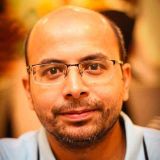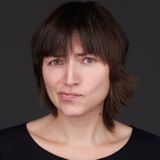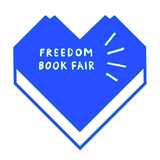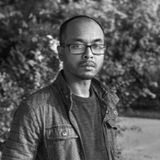In a world in which the line between governmental and non-governmental apparatus of censorship is quickly vanishing, and global corporations (e.g. social media Mughals) are becoming an important player in the public spheres of every country, it is crucial to imagine new global locations and modes of solidarity. In this quagmire, local and global power-structures have become inseparable in their structure and mechanisms of control. This event by the Freedom Book Fair aims at initiating a discussion that deals with this necessity, keeping contemporary Bangladesh as a case-study. How do we reimagine and reconfigure the modes of solidarity between global and local civil societies while decisively reckoning with this situation?
Location of event: New Metropolis Nieuw-West (Burgemeester Rendorpstraat 1, Amsterdam).
More information about the programme
Bangla Academy, the organizing body of the Ekushey Book Fair (which yearly takes place in Bangladesh during the month of February) banned Adarsha Publication from participating in this year’s book fair. Initially, they objected against a book written by popular writer Faham Abdus Salam for being critical of the government. Later, they brought similar accusations against two more books (both of which are written on the Bangladeshi economy and development policy, and for a general audience) published by the Adarsha. One of these books is written by Faiz Taib Ahmed, a popular Bangladeshi writer who resides in the Netherlands. As a result of this censorship, more than 300 Bangladeshi authors (including the moderator of this seminar, Parvez Alam) fell victim to this censorship, as their books will not be present at this year’s national book fair.
Ekushey Book Fair used to be the most vibrant literary event in Bangladesh. But since 2015, the book fair has become an event that celebrates arbitrary censorship, and has become a space of tragedy for the Bangladeshi literary sphere. It was also in 2015, when popular Bangladeshi writer Avijit Roy was killed while visiting the book fair. The book fair organizers made sure that none of his books were part of the event in 2016. This was one of the main reasons for the organization of Freedom Book Fair in the Netherlands, which was an initiative by Bangladeshi exiled writers in the Netherlands, the Dutch civil society, Bonnya Ahmed, and internal communities that are concerned on the issue of freedom of expression. Since then, the situation in Bangladesh has only worsened, as book bans and oppression against writers/journalists became a regular phenomenon. Some of the most vocal Bangladeshi writers and intellectuals now only manage to speak their minds because they no longer live in Bangladesh. The recent ban of Adarsha is also an attempt of silencing the voice of these dissident and critical writers who reside in the western countries.
Bangla Academy is officially an independent public institution, yet its current role is nothing more than an ideological apparatus of the ruling regime of Bangladesh. However, various private corporations in Bangladesh are playing similar roles, for example online bookshop Rokomari (which removed Avijit’s book from their shop in 2014, and one of Parvez’s book on 2020) also removed the books by Faiz, Zia Hassan and Faham, the same books that got banned by Bangla Academy. On the other hand, the Facebook administration in Bangladesh also arbitrarily banned many of these writers, and/or curtailed their public reach. Bangladeshi writers complain that the Facebook administration is working alongside the Bangladeshi government and the secret police DGFI (which is well known for its role in human rights violations). With the help of public institutions, and local and global corporations, a one-party dictatorship like the current Bangladeshi government has successfully curtailed critical voices. Similar mechanisms have been employed in many other countries of the global south.
In a world in which the line between governmental and non-governmental apparatus of censorship (as well as the local and global modes of freedom of expression) is quickly vanishing, and global corporations (e.g. social media Mughals) are becoming an important player in the public spheres of every country, it is crucial to imagine new global locations and modes of solidarity. This event by the Freedom Book Fair aims at initiating a discussion that deals with this necessity.
About the speakers
Pritha Belle works as an organizer for the Dutch union, FNV. Currently part of the minimum wage campaign Voor14, Pritha has worked for Human Rights throughout her career. The red line always being organizing communities for change. Colombia, South Sudan and Bangladesh are on the list, and that is how Pritha met Parvez. The idea about the book fair was born during a chat between the two.
Jakob de Jonge (1982, BA, MA) studied Religious Studies at Leiden University (NL) and Institut Catholique de Paris (Fr) and painting at the Royal Academy of Arts in The Hague (NL). He worked as a research and advocacy officer at human rights organizations like Justice and Peace and Amnesty International, mainly focusing on human rights of irregular migrants. In 2014 he founded The Hague Peace Projects, a human rights and peace building organization, dedicated to conflict resolution by bringing people together through dialogue. He is also an accomplished visual artist, making large colorful paintings that have been exhibited at many high end art venues, both in The Netherlands and abroad.
More information about the other speakers will follow soon.
About the moderator
Parvez Alam is a writer, researcher in the field of culture and a PhD candidate at the Amsterdam School of Cultural Analysis. Parvez is also one of the initiators of Freedom Book Fair.








